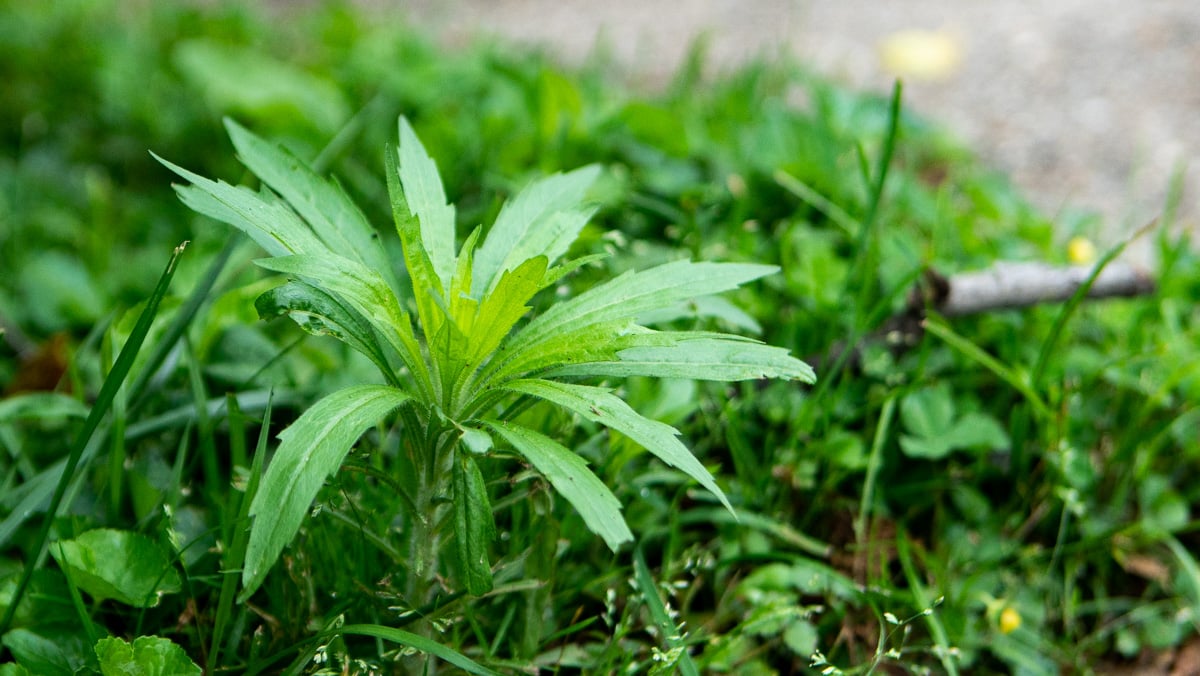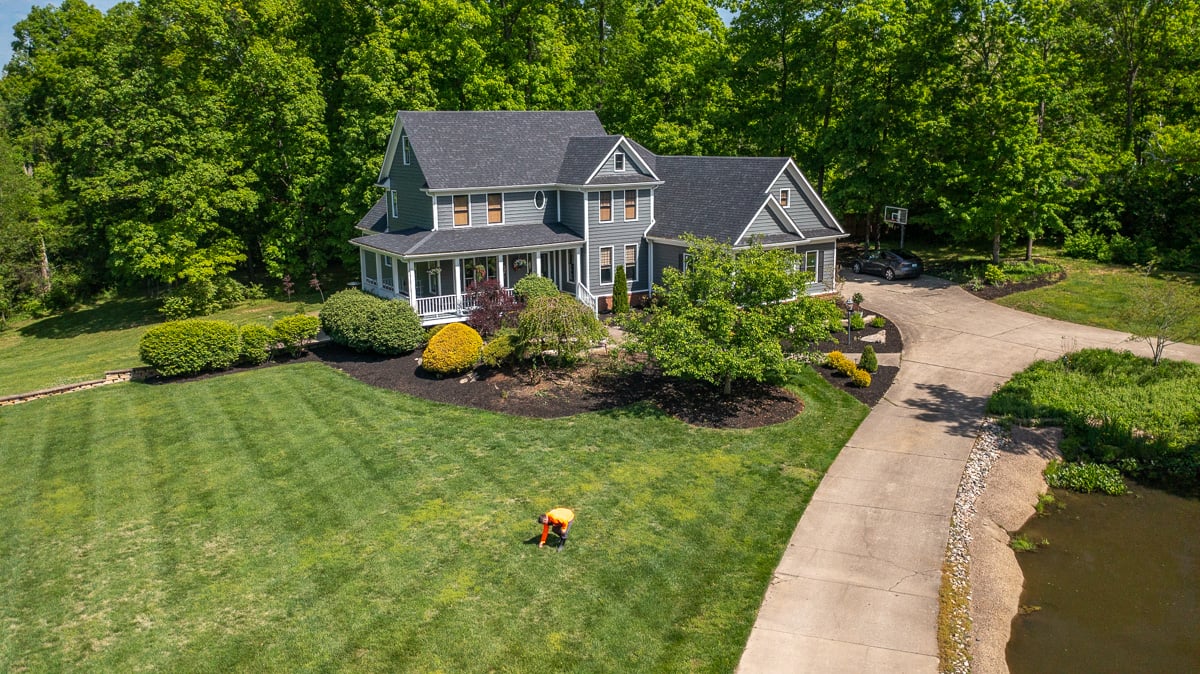

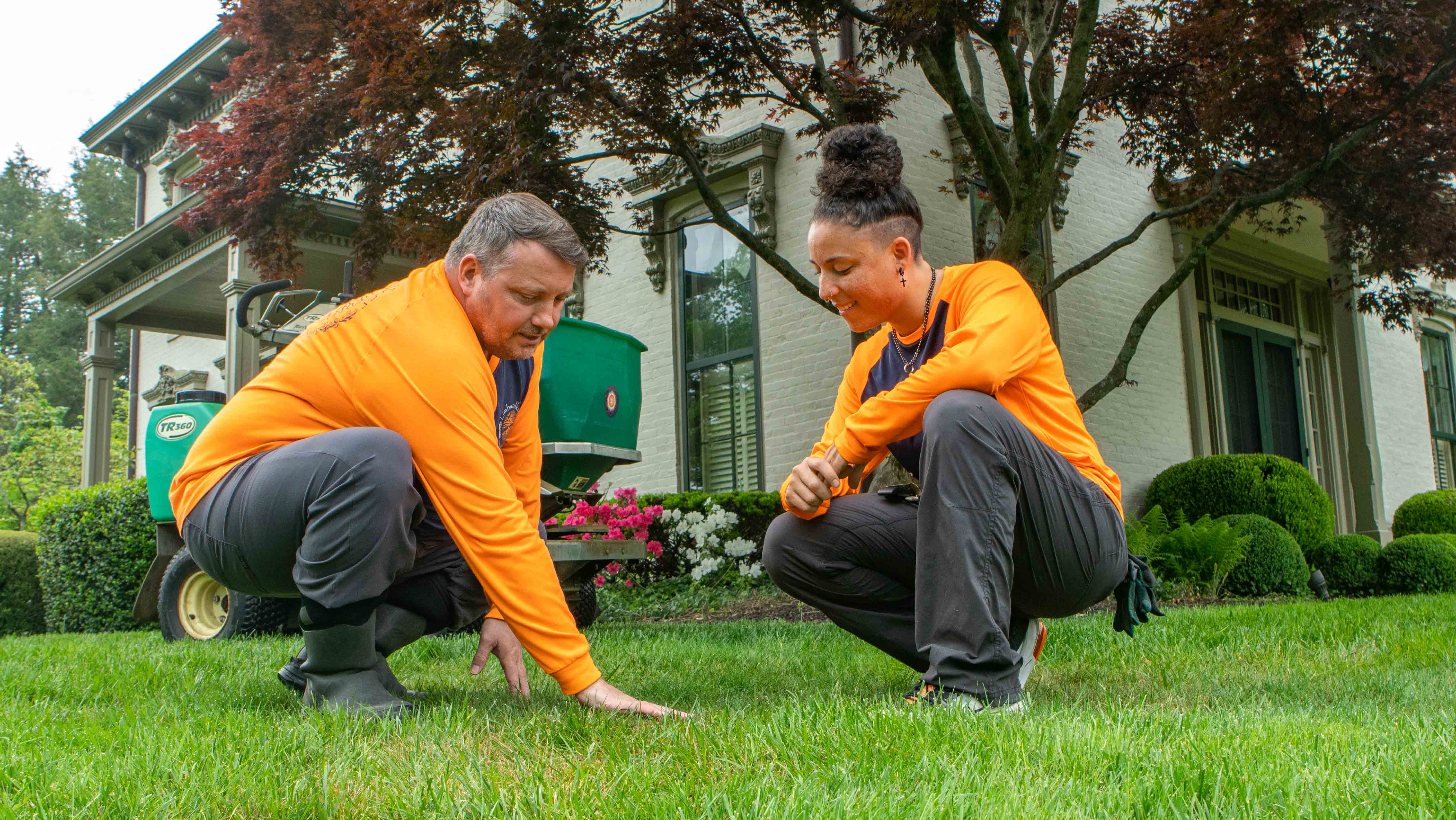
When it comes to a thick and healthy lawn, weeds are the enemy. Of course, there are going to be some weed types that are more of a problem than others. Invasive weeds that spread quickly tend to be the biggest frustration.
To fight back against weeds, you have to know what you’re dealing with. That’s why we’ve rounded up this list of some of the most common weeds in Kentucky. These are invasive weeds that tend to pop up frequently in our area.
In this article, we’ll not only talk about how to identify them but also how to get rid of these weeds in KY.
Although this is not an exhaustive list of all the different weeds that you might see in our region, these are some of the most prevalent. It’s highly likely you’ve seen many (if not all) of these at some point.
Of the invasive weeds in Kentucky, this is a top contender. That’s because it is both aggressive and difficult to control. You will often see crabgrass grow in thinned-out areas of the lawn or on areas that border hardscaping, such as along a sidewalk or driveway. Crabgrass will also sneak into spots that a trimmer might have accidentally scalped.
Crabgrass is best addressed with a pre-emergent that will help prevent as much of it as possible. Pre-emergents work by creating a barrier that prevents germination. Breakthrough crabgrass can then be controlled with a post-emergent product.
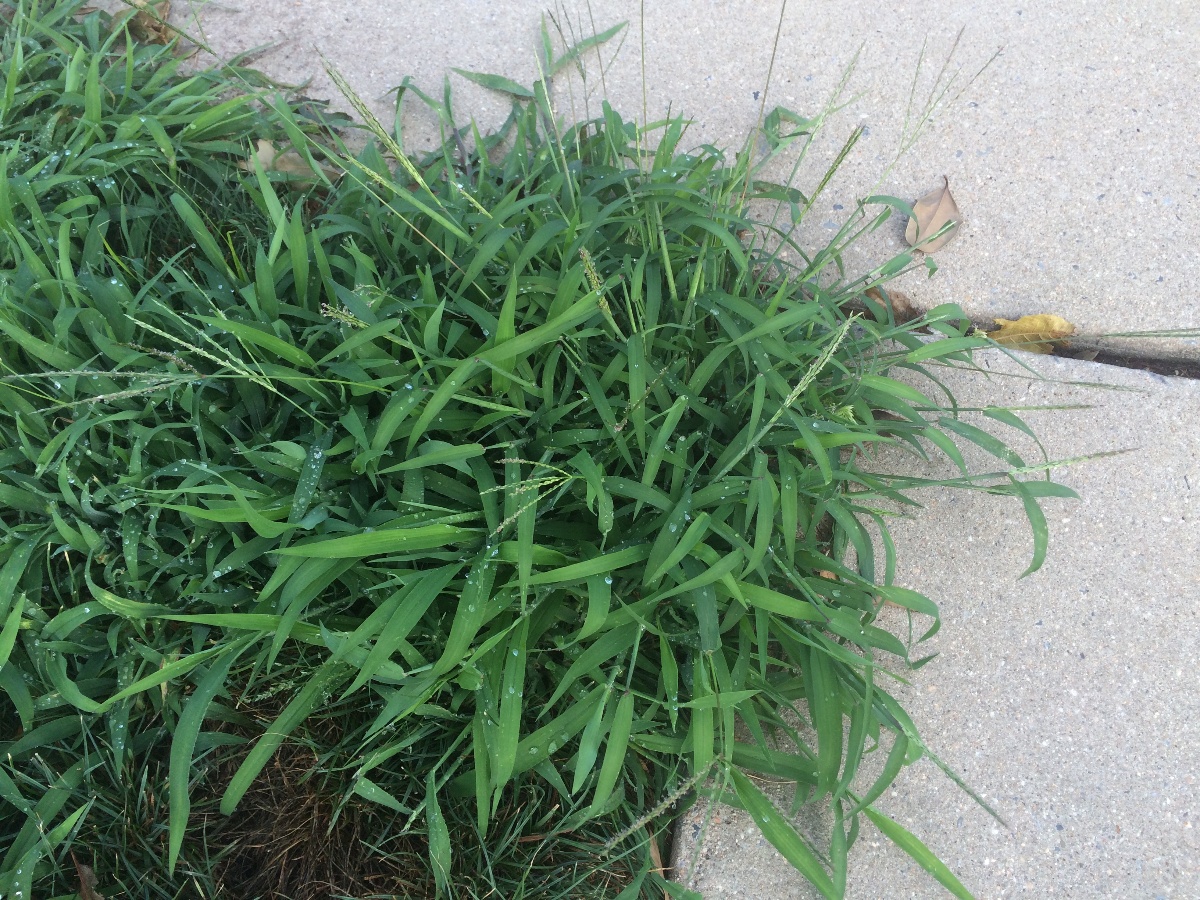
Nutsedge is another aggressive grassy weed that can cause a lot of frustration. Sometimes referred to as “nutgrass,” this perennial tends to grow best in moist areas of the lawn. It can grow quickly in warm weather.
One of the reasons that nutsedge can be so difficult to control is that it reproduces underground via tubers called “nutlets.” That means it might be spreading beneath the surface without you even realizing it.
Getting rid of nutsedge requires specialty controls. It may require repeated applications given its persistence.
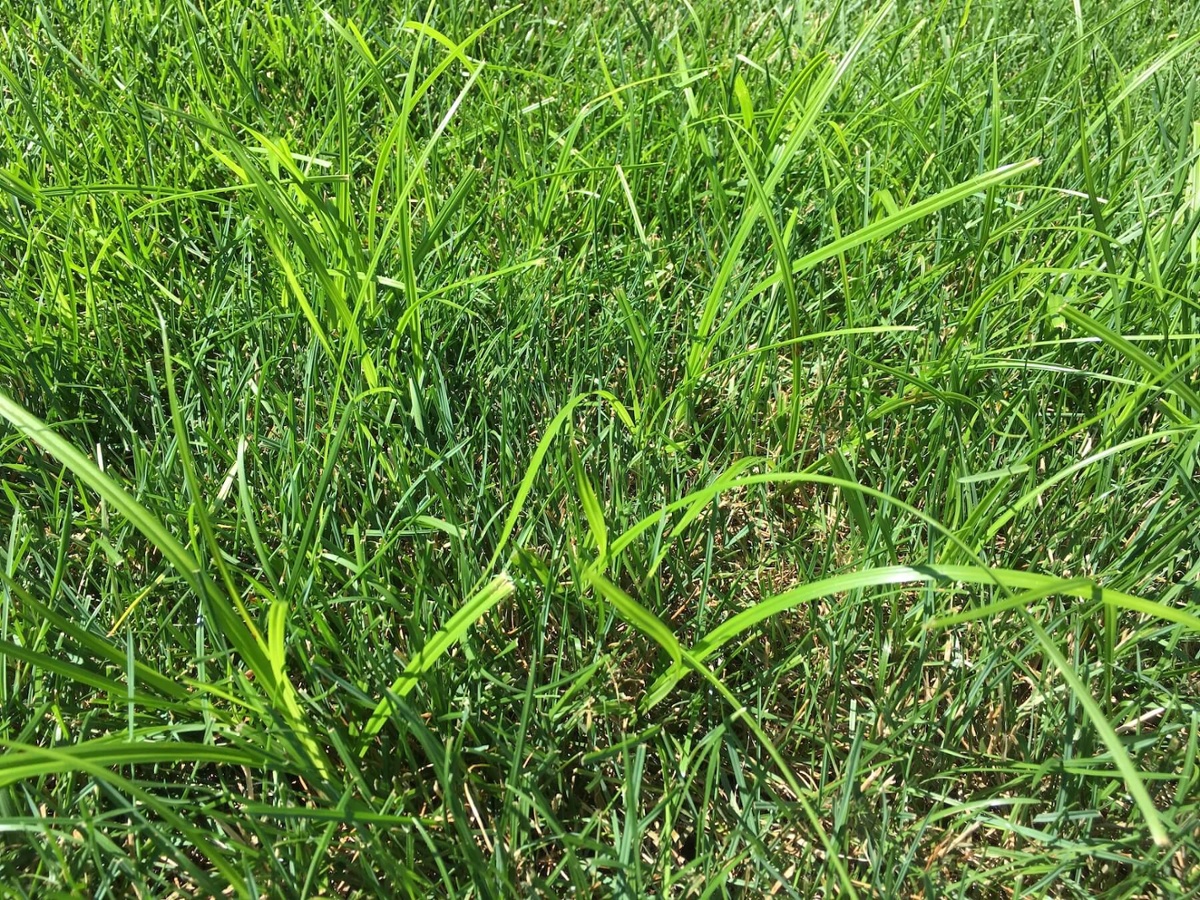
Thanks to its fast-spreading nature, a few clovers can quickly become a lawn full of them if given the chance! Clover is very common here in Kentucky and tends to perform best in lawns with a low soil pH.
Clover has a shallow root system and can spread quickly in spots where the grass is already thin and the clover is not competing against it for survival.
Getting rid of several clovers isn’t that big of a deal, but because it can be aggressive and spread quickly, it can take repeated weed control applications to address a more serious case of it.
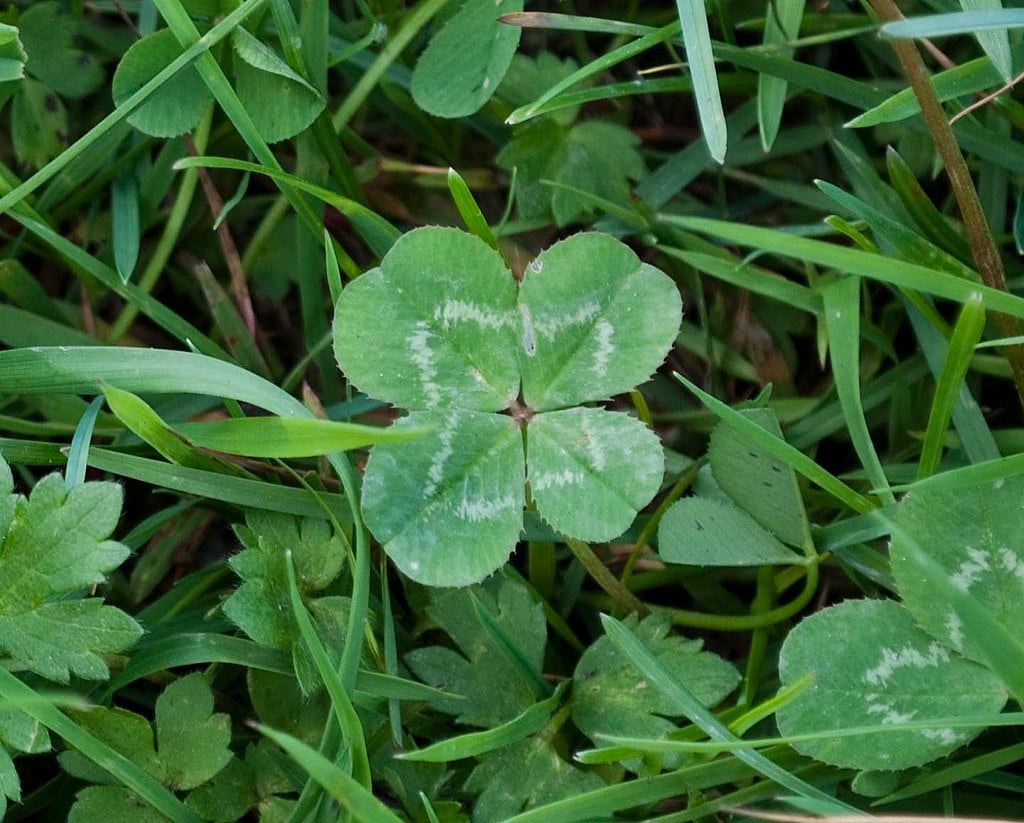
As far as invasive plants in Kentucky go, wild violets can be some of the worst. That’s because they are difficult to control. Though their purple flowers are actually quite pretty, this weed is an aggressive grower that forms thick mats of leaves that can begin to deprive your lawn of nutrients.
But it’s the thick and extensive root system that makes wild violet so invasive. Plus, its waxy leaf covering makes it difficult for weed control products to “stick” as they are meant to. All of this adds up to repeated applications of control products if you have a tough case.
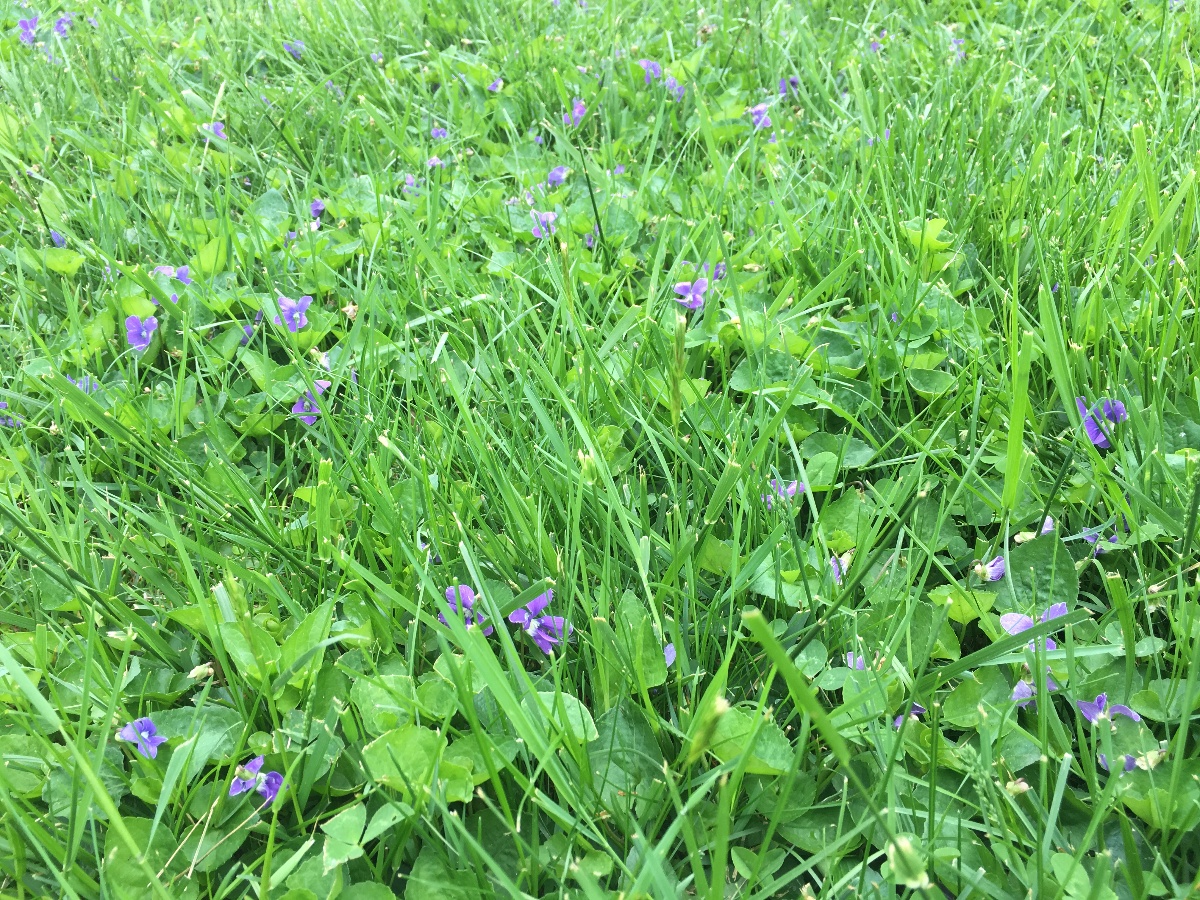
Creeping Charlie weed is another difficult-to-control weed that can spread quickly on a lawn. This perennial weed spreads by seeds, rhizomes, and creeping stems. It performs best in moist, shady spots, such as beneath trees and shrubs. It can form extensive mats as it “creeps” across the lawn.
While you can hand-pull Creeping Charlie, it is quite difficult to get the entire weed since so much of its root system is tangled and invasive beneath the surface.
The best way to address Creeping Charlie is with a professional application of a broadleaf weed control product. You’ll need multiple applications for this aggressive grower.
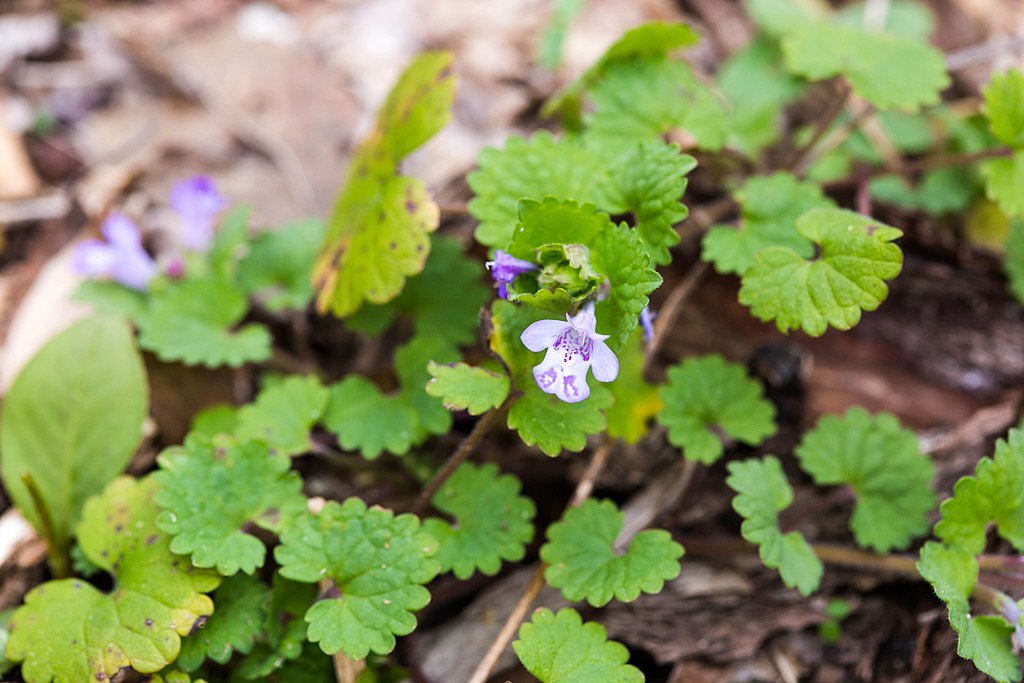
As you can see from each of the weeds that we’ve mentioned above, there are different control methods for different weeds. That’s why it’s so important that your approach to weed control is varied. It should include multiple products used at different times of the year (and customized to your specific lawn and its needs).
Every lawn is going to be different, so it’s important that you are working with a lawn care company that doesn’t just apply a one-size-fits-all approach.
On top of weed control products, you should know that a complete lawn care program that promotes the growth of a thick and healthy lawn is also going to help you in the fight against lawn weeds. That’s because a thriving lawn is one of the best defenses against weeds that there is.
Any time that a weed attempts to invade your lawn, it has to fight against the grass that is already growing there. If your lawn is thin or bare in areas, it’s going to make it much easier for weeds to grow. But if your lawn is thick, healthy, and thriving, it’s going to naturally choke out those unwanted weeds.
In addition, in your fight against weeds in Kentucky, you also want to make sure that your lawn care program is supporting optimal grass-growing conditions such as a healthy soil pH and overall healthy soil. So often, weeds perform better in conditions where grass struggles to grow.
Getting your lawn in healthy shape can make a huge difference in terms of naturally keeping weeds away.
Homeowners sometimes ask us about a DIY approach to weed control. After all, there are weed control products available in their local hardware store, so why can’t they just do it on their own?
There are a lot of reasons why it makes sense to partner with a lawn care professional in your fight against weeds in KY.
For one, your weed control arsenal really does need to be robust and varied. As we’ve mentioned, the weeds above are just 5 examples of common invaders—but there are many more. Since different weeds require different controls, you’d need to invest in a variety of products to ensure you’re fully covered. This also includes specialty controls, like we talked about above for nutsedge.
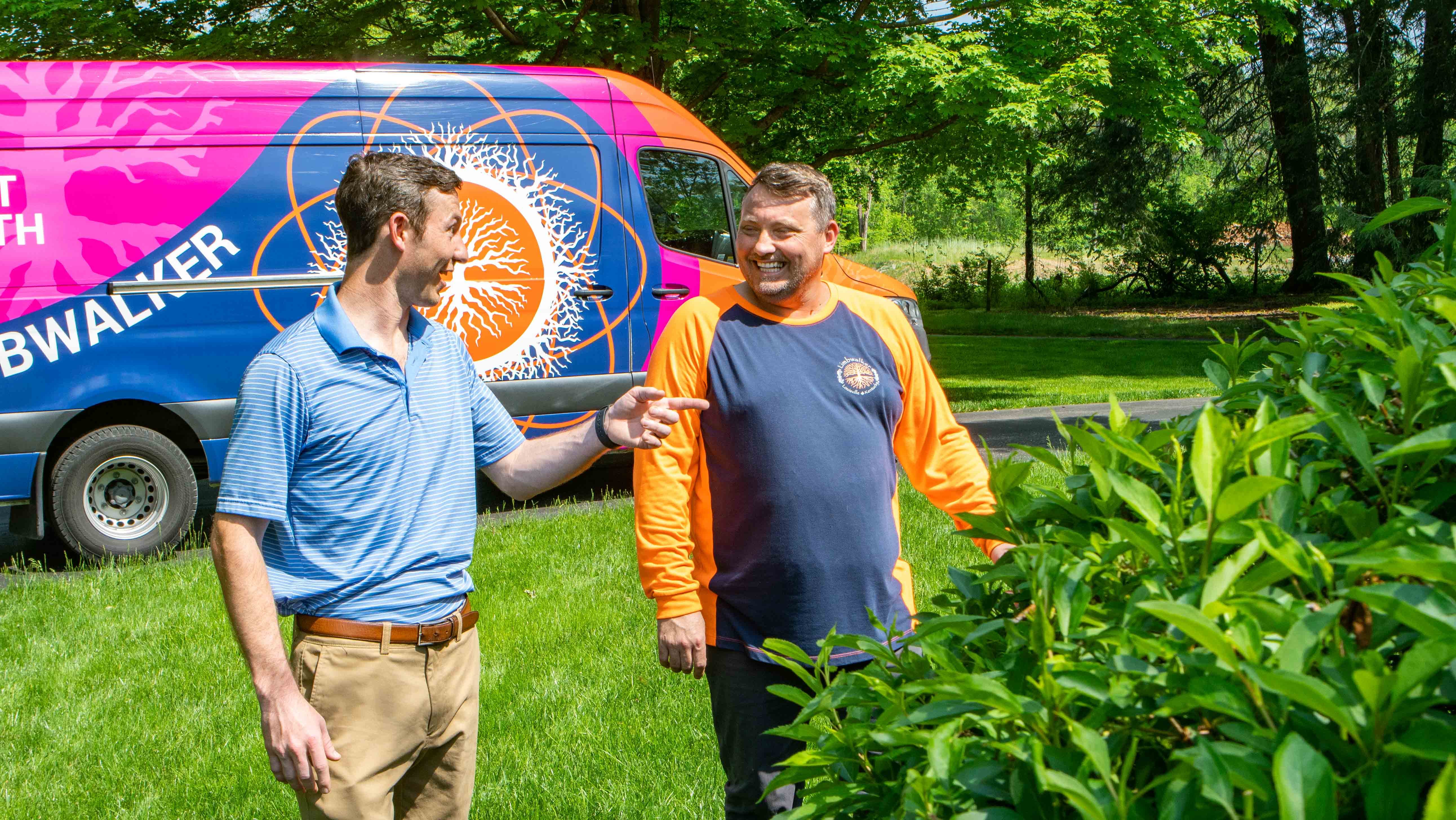
Plus, you’d need to make sure you are properly identifying all the different weeds in your lawn to ensure you’re treating them with the right product.
All of this adds up to a lot more time and effort than you probably feel like dealing with. And on top of all your weed control work, you’d also want to be sure to implement services like lawn fertilization and grub control to ensure that your lawn continues to perform its best and naturally choke out future weeds where it can.
Rather than tackling all of this on your own, you can simply hand over your worries to a lawn care professional who can handle them for you.
Not only do you gain access to their professional expertise, but you can rest assured they have the full range of products and services that will be needed to keep your lawn in the best possible shape and get rid of those unwanted weeds.
Invasive weeds in Kentucky are more than just a nuisance. They can have a negative impact on your time outside if they’re causing you a lot of frustration.
But it doesn’t have to be that way!
With the right approach to weed control, you can be on your way to getting rid of weeds and getting back to enjoying your lawn to the fullest.
Are you ready to have a thick and healthy lawn that naturally chokes out weeds at your Louisville, KY home? Get in touch with us to get a quote for our lawn care programs, which include three lawn care pricing options.
Image sources: clover weed in lawn, creeping charlie weed



